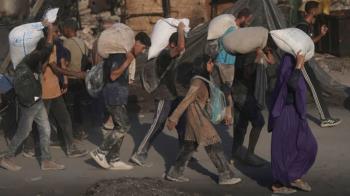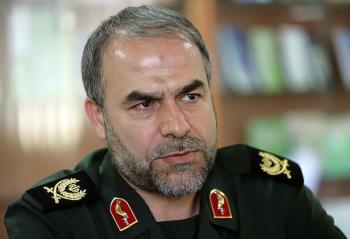Alwaght- Yuval Diskin, former head of the Israeli Internal Securitate Service (Shabak), in an article recently punished by Yedioth Ahronoth newspaper, warned about risk of Israeli regime collapse after a generation and said that the risks threaten Israel are not external. They are “internal.”
The important issue now is that while acknowledging the internal crises that the regime is struggling with, he acknowledges the possibility of the breakdown of Israel as a result of crises that occur in many other countries of the world, but the serious negative effects of them are usually revolution and overthrow of the political system and even partition, but not the total fall of them.
Now the question is why are the Israeli politicians and elites see possible the breakdown of this occupying regime?
A regime imposed on the region for imperialist interests
One of the main reasons for the fear of collapse among the Israeli leaders is the artificial and imposed nature of the regime, which has made it an unusual member and incompatible with other countries in the region and a set of states that exist in the same region. Therefore, the Israeli regime cannot adapt to the environment in which it lives and become a compatible member with other members and components of the regional system.
The geopolitical importance of the West Asia region as the heart of world developments in the second half of the twentieth century and the significance of the oil made Western imperialism aware of the necessary to get a foothold to intervene in the region. Therefore, a foreign element had to be injected into the region in order to provide a strong foothold for the Western powers to exploit the region and loot its natural wealth. In fact, the Israeli regime has served the US for four decades as a reinforcer of the world polarization following the Second World War in one of the world’s most strategic regions. From its inception, therefore, the Israeli regime served Western imperialism more than anything else, more like a military garrison than a state.
Its dependent and instrumental nature can be well understood by focusing on its full reliance on foreign political, military and economic aids. The Israeli economic situation is largely determined by its role as the gendarme of US imperialism in the region. It receives more aid than any other country in the world, much of which is spent on militarism.
That is why, after Britain's unwavering support for the establishment of the so-called Jewish state under the Balfour Declaration of 1917, the US became a major supporter of the Israelis as it won the First World War and started to play role of a power in West Asian developments. The activities of the "Zionist Organization of America" during the war led to the increase of Jewish immigrants in the Palestinian territories to the point of establishing the Israeli regime. US President Franklin Roosevelt declared his firm support for the Zionist plan. As President Harry Truman did after him, and this domino continued to date.
Israeli regime; the nationless state
Despite the fact that the Israeli regime ostensibly holds all components making up a state like land, population, and power, the lack of nation— a population with a genuine sense of belonging with a common history and willingness for coexistence— as the main element constituting a state existed since the beginning and is heavily felt to date.
That is why the former Shabak director points to this important component in mentioning some of the reasons for concern about the disappearance of Israel in the near future. He wrote in the article: "According to the facts and data of the Israeli Central Statistics Office, after 40 years, half of the Israeli citizens will be Haridis and Arabs, and it is important to know what the two groups have in common today and why in the future, they will paint the government picture and affect its power and existence in another 30 or 40 years."
Although this Israeli official mentioned these two social groups, this is applicable on all Jews settling in the occupied Palestinian territories. The Jews settled in the Palestinian territories arrived there from all parts of the world under an organized project, and their migration reason vacillated between developments between the two world wars and their quest for welfare. A large number of the Israeli Jews still tie their national identity to somewhere outside the occupied territories and within another nationality.
Diskin acknowledges “many [Israeli] citizens prefer to live in another part of the world rather than Israel.” The Israeli regime is now facing reverse immigration under which the settlers, for an array of reasons from constant feeling of insecurity to the shattering of the dream of excellent social welfare, are leaving the occupied territories for other countries.
Zionist ideology expiration
Zionism is an ideological bond linking to each other the components of the so-called Jewish state. Zionism argues that the Jews are the “chosen people” of God and Palestine is the “Promised Land.” Zionism always promotes the idea that the Jews are non-integrable in other people and that they should have their own state. This interpretation of the religious texts was highlighted by the secular Jews in the form of historical legacy and documents. Still, in the past three decades, religious dispositions grew and so did the divisions between the religious fundamentalists and secular Zionists.
In such circumstances, the Israeli regime is far from being able to manage religious conflicts as it pleases. Religious parties and movements want to define the Zionist regime as a Jewish regime and institutionalize religious discrimination. Secular parties on the other side try to integrate non-Jewish minorities into society by emphasizing the secular nature of the regime. This conflict removes the cover from the contradictions present in the heart of the Zionist ideology.



























